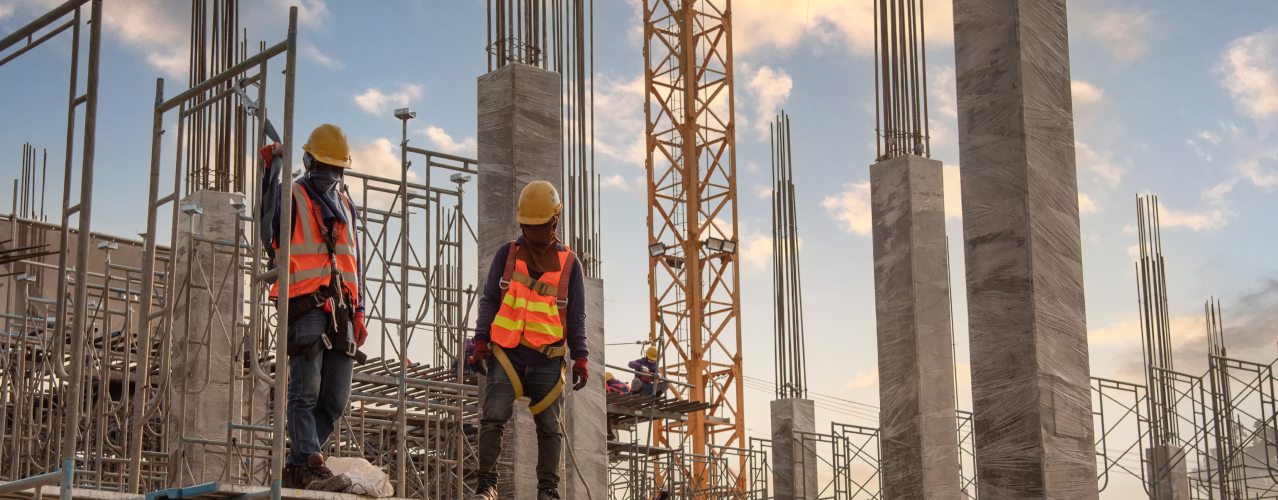

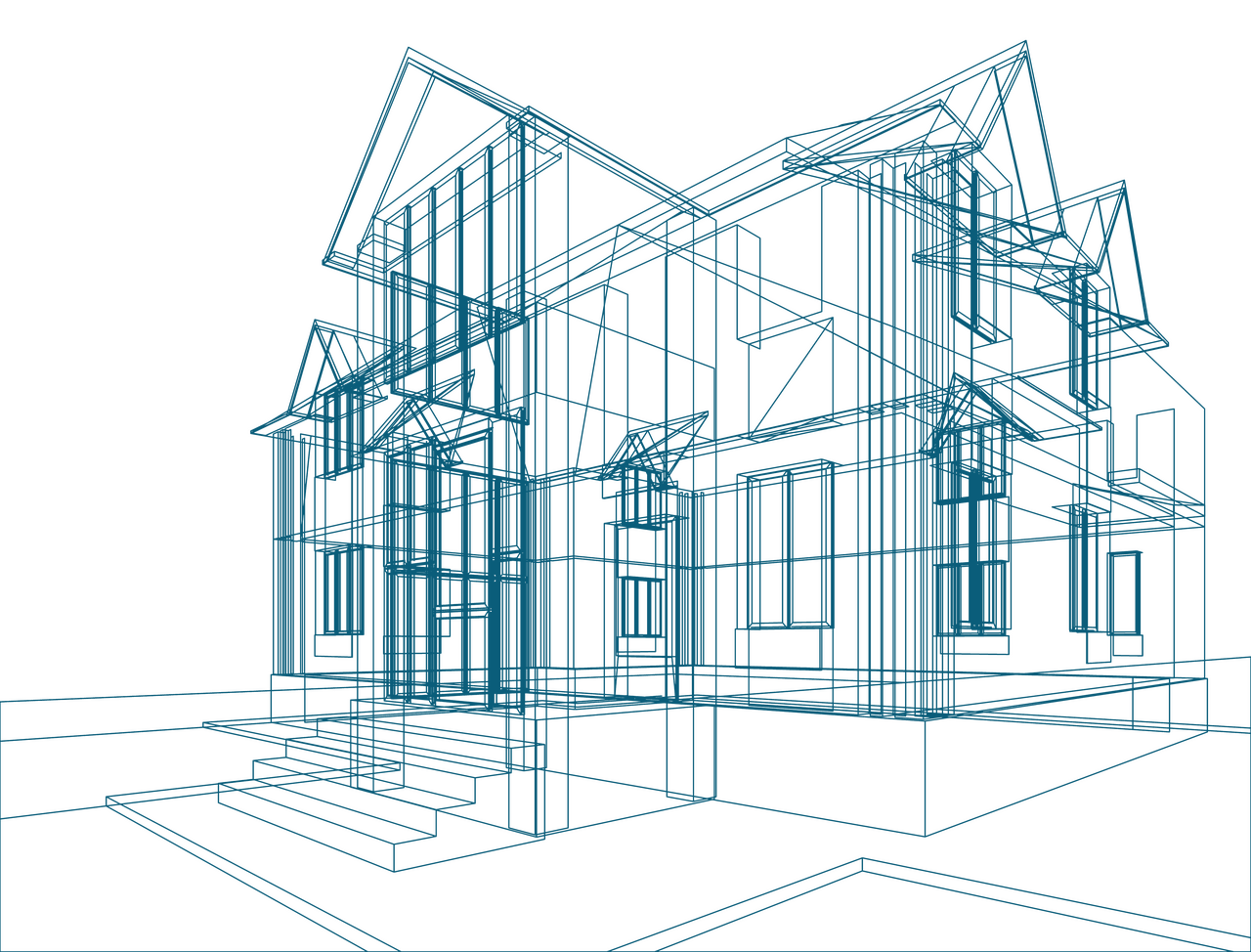
News I published 26 October 2022
Installers’ usage of prefab is continuously growing
Labour shortage is an ever-pressing issue in the construction and installation sector. Using prefabricated elements offers a partial solution to the labour shortage problem. Prefab allows construction and installation professionals to work faster and more efficiently. As such, prefab does not create more professionals to do the jobs, but allows the existing professionals to do more jobs in the same amount of time.
We have seen usage of prefab in European building construction increase year by year over the past decade. This is evident in for instance the growing experience Architects and contractors have with prefabrication in their projects. The question is whether that is also the case with professionals that are involved later in the construction process and further along the value chain, like for instance HVAC installers and plumbers?
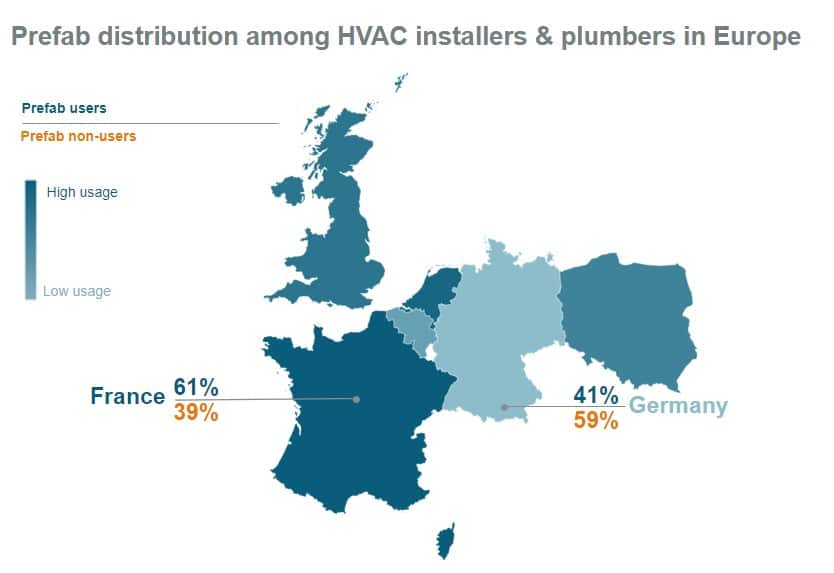
More than half of European installers use prefabricated products in their projects
To answer this question, we focused the Q2 2022 report of USP Marketing Consultancy’s European Mechanical Installation Monitor on prefabrication. We asked over 650 HVAC installers and plumbers from six European countries about their experience with prefabrication in their daily business. As it turns out, more than 50% of these installers use prefabricated products in their installation projects. Looking at specific countries, this ranges from 41% of installers in Germany, to 61% of French installers using prefabricated products.
It has to be said though that prefab and prefabricated products are very broad terms describing a wide array of larger or smaller forms of prefabrication. We are talking about prefabricated products in the broadest sense, including anything from entire preconstructed and pre-installed boiler rooms or bathroom pods, to a few simple pipes that were cut to size before they were transported to the installation site.
Size matters
As mentioned, usage of prefab differs a bit per country. When comparing differently sized companies, however, more dramatic differences appear. Of the smallest installation companies (up to 4fte), only 37% reported to use prefabricated products in their projects, whereas 56% of the medium-sized companies (5-14fte) reported the same. Of the companies that employ 15 or more fulltime employees, nearly seven out of ten use prefab.
It is clear that the larger the company is, the more likely it is that it uses prefabrication in its projects. This is no surprise, as smaller installation companies are more often involved in smaller residential projects or do more maintenance and repairs, which less often involve prefab. Larger installation companies, on the other hand, are more often involved in large construction projects in which prefabrication is used more often.
Prefab usage likely to grow even more
As labour shortage is not expected to be resolved any time soon, that driver will cause prefab usage to continue to grow. Other benefits of prefabrication, like a more efficient use of materials and a reduction of waste and space needed at the construction site, will continue to drive its usage as well. Altogether the future of prefabricated elements and products is looking bright.
Still, prefab will be used the most by larger installation companies, as it is more profitable for them to use prefabricated elements in their generally larger projects. At the moment they are mainly using prefab in residential projects, and it appears there is still much to gain where it comes to non-residential application of prefabricated installation products.
For a full overview of installers’ usage of prefabricated products in their installation projects in six major European markets, we refer you to the Q2 2022 report of USP Marketing Consultancy’s European Mechanical Installation Monitor.

Read more
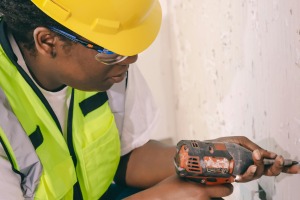

12 December 2024 I Dirk Hoogenboom
Buying Behavior of Handymen
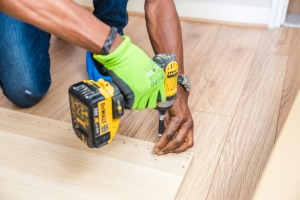

12 December 2024 I Henri Busker
Handymen Radar – Private Labels vs. Branded Products


12 December 2024 I Dirk Hoogenboom
Sustainability and Painting – What Matters Most?


12 December 2024 I Zeynep Kutsal
Are European Painters Getting Younger?

Fresh Insights Await
Our relevant reports
Delve into the newest findings across various market segments, crafted for a cutting-edge overview. Explore our insightful reports, brimming with up-to-date data, trend analyses, and in-depth examinations, all tailored to provide you with a comprehensive understanding of the current market dynamics.
Construction
Home Improvement
Installation
Special reports
Construction
Decision making process Q3 2024
2024 87 pages
Unveil the decision-making processes in the construction industry through the lens of European architects. Discover the factors that influence crucial decisions and the interplay among different stakeholders.
2,000 Euro
Construction
Prefab H1 2024
2024 63 pages
Discover the adoption rate and benefits of prefabrication technology among European contractors in H1 2024. Understand the driving forces behind prefab usage and its impact on project efficiency and cost-saving.
6,000 Euro
Construction
Sustainability 2024
2024 72 pages
Painter Insight Monitor 2024 will focus on understanding the specific needs, preferences, and challenges faced by painters when it comes to sustainable products.
11,000 Euro
Construction
Importance of branding & branding funnels 2024
2024 62 pages
This report offers a comprehensive overview of importance of branding and branding funnels with a specific focus on European handymen. Brand behaviour is covered for each country, showing purchasing power, differences regarding quality, sustainability, online shopping, innovation-habit and private labels,
8,600 Euro
Construction
Future of construction Q2 2024
2024 82 pages
Explore the evolving future in construction sector among European architects in Q2 2024. Delve into the factors driving material preferences and the impact on construction aesthetics and sustainability.
2,000 Euro
Construction
Trends in material usage Q1 2024
2024 102 pages
Explore the evolving trends in material usage among European architects in Q1 2024. Delve into the factors driving material preferences and the impact on construction aesthetics and sustainability.
2,000 Euro
Home Improvement
European Garden Monitor
2023 43 pages
Explore the European Garden Monitor, a comprehensive platform dedicated to garden health monitoring in Europe. Access valuable resources and expert advice today.
12,000 Euro
Home Improvement
Purchase channels Q2 2024
2024 90 pages
The European Home Improvement Monitor offers valuable insights on purchase channels in the European home improvement industry, examining the evolving preferences and behaviors of consumers across traditional retail and emerging online platforms.
3,500 Euro
Home Improvement
Sustainability Q1 2024
2024 81 pages
Delve into sustainability trends in the home improvement sector in Q1 2024. Discover consumer preferences and the shift towards eco-friendly home improvement solutions.
3,500 Euro
Home Improvement
DIY versus DIFM Q4 2021
2024 113 pages
This report is a must-have if you’re in the home improvement industry. It provides a wealth of information on the behaviour of DIY and DIFM consumers, their motivations, and the factors that influence their purchasing decisions.
3,150 Euro
Home Improvement
DIY or DIFM Q4 2023
2024 70
Explore the prevailing trends between DIY and DIFM in Q4 2023. Understand consumer preferences and the factors influencing their choice between DIY and DIFM.
3,500 Euro
Home Improvement
Branding Q3 2023
2023 93 pages
This report offers an extensive overview of the home improvement industry, with a focus on branding and the most popular brands within different categories. Within this report, you will gain insights into how customers perceive home improvement brands and what motivates them to buy certain products.
3,500 Euro
Installation
Services in the installation sector Q4 2024
2025 102 pages
This report provides a comprehensive view of the installer's requirements for services from manufacturers. Within the report, you will find information on the most needed services in each category: commercial processes, engineering, products & installation, and repair & maintenance. It also examines the services that installers offer to their customers.
3,250 Euro
Installation
Prefab Q3 2024
2024 110 pages
Uncover the adoption of prefabricated products in HVAC installations during Q2 2022. Delve into the benefits and challenges associated with prefabrication in HVAC.
2,800 Euro
Installation
Branding Q3 2024
2024 74 pages
Discover the power of branding in the home improvement sector. Explore how strong branding influences consumer preferences and purchase decisions.
3,500 Euro
Installation
Prefab Q3 2024
2024 119 pages
This report offers a comprehensive view of the installers’ involvement and needs regarding prefabricated electrical installations.
3,250 Euro
Installation
Smart & Connected Products Q2 2024
2024 120 pages
This report provides a comprehensive view of the attitudes of installers toward smart building solutions, specifically among electrical installers and their clients. In the report, you will find insights into the installers' experiences with installing smart products and the willingness of end users to invest in such solutions, as well as their motivations and pain points.
3,250 Euro
Installation
Smart and connected products Q2 2024
2024 129
This report provides a comprehensive view of the attitudes of installers toward smart building solutions, specifically among HVAC installers, plumbers and their clients. In the report, you will find insights into the installers' experiences with installing smart products and the willingness of end users to invest in such solutions, as well as their motivations and pain points.
2,800 Euro
Special reports
European Sustainability Report 2024
2024 51 pages
This report provides in-depth insights based on triangulation of key market information and data as well as data from USP Marketing Consultancy’s key monitors that are carried out year in, year out. The focus of this report is on the most important stakeholders within the construction industry, namely architects, contractors, electrical and HVAC installers within The United Kingdom, The Netherlands, Belgium, Germany, Poland, France, Italy, and Spain.
3,950 Euro








